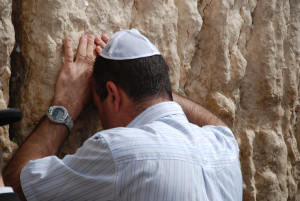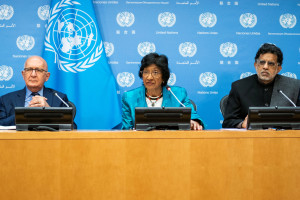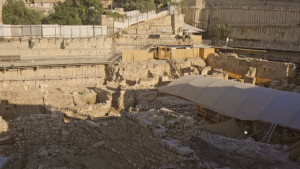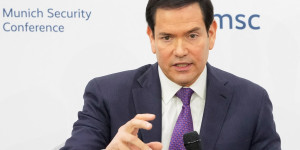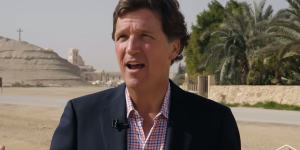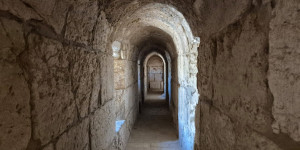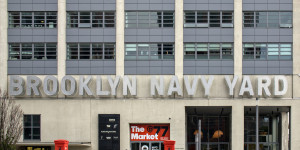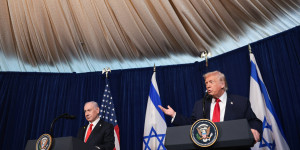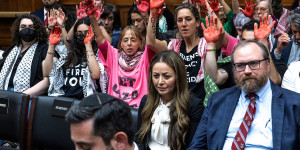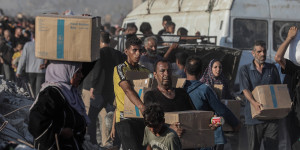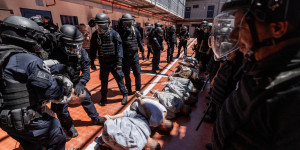France, UK and others recognized the 'State of Palestine' – but what will actually change?
The Palestinian Authority is not an effective government, no recognition will change this

On Sept. 22, 2025, France and several other nations formally recognized the “State of Palestine,” capping a wave of such recognitions coming since Hamas’ Oct. 7, 2023, invasion and massacre in southern Israel.
But apart from deepening Israel’s diplomatic isolation and rewarding terrorism, what are the recognition’s practical consequences?
Cynics would say, “none,” and that, while technically incorrect, is not far off.
No State of Palestine currently exists, despite some 100 countries having formally recognized it, and history shows that any real advances toward such a state were not accomplished by statements of recognition, but by treaties.
The institution purporting to be the State of Palestine is the Palestinian Authority (PA), a corrupt, unpopular institution created in the wake of the Oslo Accords of 1993 with the aim of becoming the government of "Palestine."
According to a widely recognized definition, a state needs land and borders, a people, a ruling system, and independence from other nations.
But recognition couldn't change the fact that ruling over a patchwork of towns the PA is a kleptocratic group of elderly politicians, who are enriching themselves while claiming moral high ground against an Israeli “occupation” that is keeping them alive.
Who represents the ‘Palestinian people’?
The web of organizations purporting to represent the “Palestinian people” is notoriously complex, necessitating a look at the history of "recognitions" to understand the situation today.
The PA was created out of the Palestine Liberation Organization (PLO), which was founded as a terror group aiming to “liberate Palestine”, meaning the destruction of Israel, in 1964, before Israel captured Judea and Samaria.
Led at the time by Yasser Arafat, the PLO was recognized by the United Nations as the official representative of the Palestinian people in 1974, gaining observer status.
A first wave of international recognition followed in 1988, when the PLO declared itself to be the State of Palestine, claiming sovereignty over the territories which by then were internationally recognized as Palestinian: Judea and Samaria, including the formerly Jordanian, eastern part of Jerusalem, and the Gaza Strip.
The UN began using the title "Palestine" to refer to the PLO delegation, and around 90 states, mainly third-world regimes from communist and non-aligned states in Asia and Africa, recognized it by the end of 1989.
At that time, the PLO also began a push for admission into UN-affiliated and other international agencies, like UNESCO, the World Health Organization, the Geneva Accords and others.
This is one of the few real-world results of recognition: when Palestine is accepted into international bodies as a state, it receives new tools to attack Israel.
For example, the current case against Israel at the International Criminal Court relies on rights granted to the court by Palestine’s admission to the Rome Statute in 2014.
However, the Palestinian Authority was created in 1994, not through UN mandates nor waves of recognition, but by a treaty between Israel and the PLO, brokered by the U.S.
In turn, this gave the push for recognition another boost, as Palestinians for the first time created institutions with a semblance of a proper government.
The PA (which now claimed to represent the "Palestinian People” instead of the PLO) was given full control of parts of Judea and Samaria, which was divided into three zones.
Civil governance and security of Area A (including Palestinian population centers and towns), and governance without security of Area B were handed to the PA, while Israel retained control of Area C.
As part of the Oslo Accords, the PA and Israel agreed to continue negotiating and not to conduct unilateral steps, with the goal being the creation of a Palestinian state down the line.
However, since then, the PA has continuously advanced unilateral moves to gain legitimacy and recognition.
In November 2012, the UN General Assembly granted Palestine non-member observer state status in a 138–9 vote. The same year, the UN began using the name State of Palestine in official documents.
Finally, the last round of recognitions means that among the nations of the UN Security Council, only the U.S. still does not recognize Palestine after France and the UK did so this year.
What does 'recognition’ truly mean?
Despite the seemingly inevitable progress toward universal recognition, it’s important to note that this did not advance much over several decades.
Only Hamas’ invasion and massacre in southern Israel gave the impetus for dozens of new nations to declare their recognition, potentially getting the PA over the hump, and, effectively, granting it universal recognition at the UN.
And even despite this, the situation in reality is not likely to change.
The PA can now elevate its existing diplomatic missions to full embassies, enabling more formal bilateral relations, visa agreements, trade pacts and the like.
But the PA has already proven to be effective at lawfare against Israel through using international bodies, and by now, has joined most of the important ones, making any significant changes unlikely.
Despite de facto recognition, Palestine is still not a full member of the UN, as this necessitates a vote from the Security Council.
As long as President Trump holds that veto, Israel can be relatively sure this isn’t going to happen – but Republicans will not rule forever, and Israel has been losing Democratic support.
In Judea and Samaria, the PA “government” remains corrupt, ineffective and highly unpopular (with its own people), and is only being kept alive by Israel’s much-maligned security forces.
Its security forces can’t, or won’t, oppose terrorism, and in any new elections, it would lose to Hamas, like it did in 2007.
Recognition didn’t force the PA to reform, improve, and make itself into a proper, democratic government over the past decades.
What might do this, however, is pressure from the U.S. and Arab states, for example, through Trump’s Gaza Peace Plan - another Israeli-Palestinian treaty brokered by the U.S.
This is a chance for the PA to prove – on the ground, in reality – that it can effectively secure and govern a territory with clear borders, making true progress toward being a state.

Hanan Lischinsky has a Master’s degree in Middle East & Israel studies from Heidelberg University in Germany, where he spent part of his childhood and youth. He finished High School in Jerusalem and served in the IDF’s Intelligence Corps. Hanan and his wife live near Jerusalem, and he joined ALL ISRAEL NEWS in August 2023.
You might also like to read this:



